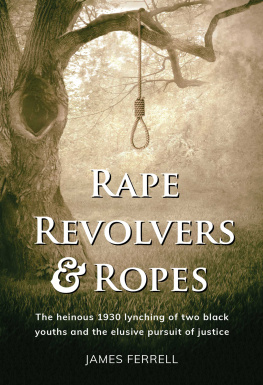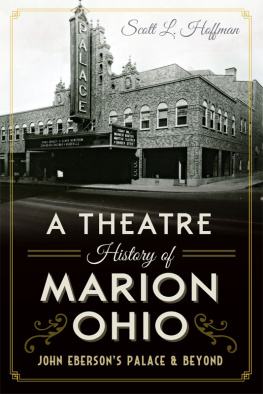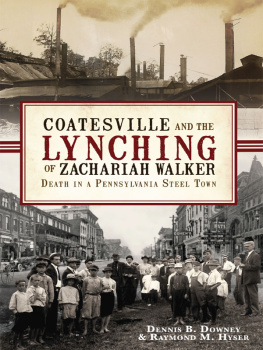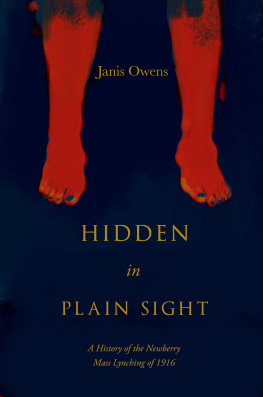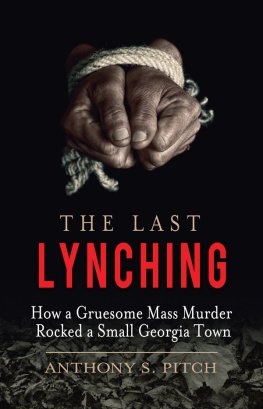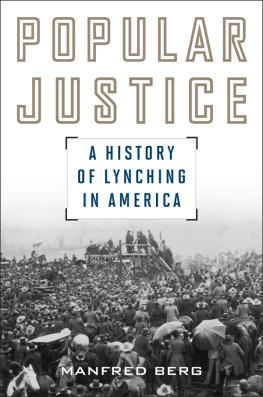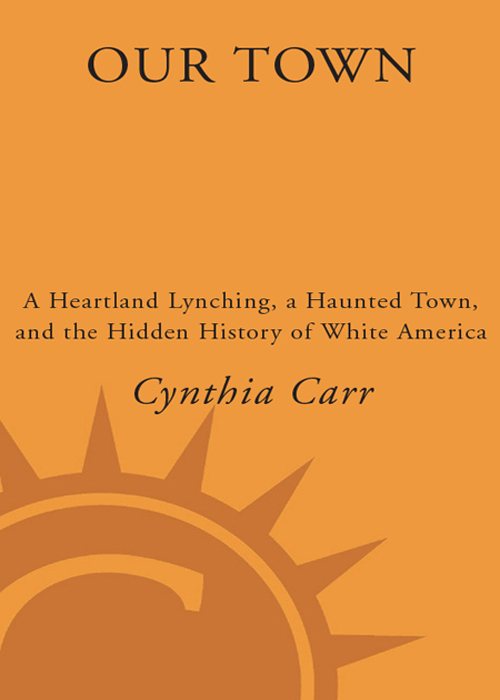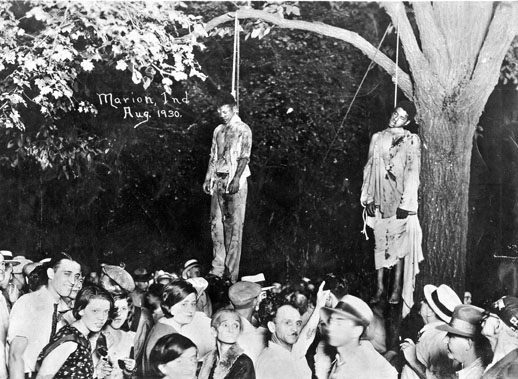Cynthia Carr - Our Town: A Heartland Lynching, a Haunted Town, and the Hidden History of White America
Here you can read online Cynthia Carr - Our Town: A Heartland Lynching, a Haunted Town, and the Hidden History of White America full text of the book (entire story) in english for free. Download pdf and epub, get meaning, cover and reviews about this ebook. year: 2006, publisher: Crown, genre: Detective and thriller. Description of the work, (preface) as well as reviews are available. Best literature library LitArk.com created for fans of good reading and offers a wide selection of genres:
Romance novel
Science fiction
Adventure
Detective
Science
History
Home and family
Prose
Art
Politics
Computer
Non-fiction
Religion
Business
Children
Humor
Choose a favorite category and find really read worthwhile books. Enjoy immersion in the world of imagination, feel the emotions of the characters or learn something new for yourself, make an fascinating discovery.

- Book:Our Town: A Heartland Lynching, a Haunted Town, and the Hidden History of White America
- Author:
- Publisher:Crown
- Genre:
- Year:2006
- Rating:4 / 5
- Favourites:Add to favourites
- Your mark:
Our Town: A Heartland Lynching, a Haunted Town, and the Hidden History of White America: summary, description and annotation
We offer to read an annotation, description, summary or preface (depends on what the author of the book "Our Town: A Heartland Lynching, a Haunted Town, and the Hidden History of White America" wrote himself). If you haven't found the necessary information about the book — write in the comments, we will try to find it.
Marion is our town, Americas town, and its legacy is our legacy.
Like everyone in Marion, Carr knew the basic details of the lynching even as a child: three black men were arrested for attempted murder and rape, and two of them were hanged in the courthouse square, a fate the third miraculously escaped. Meeting James Cameronthe man whod survivedled her to examine how the quiet Midwestern town she loved could harbor such dark secrets. Spurred by the realization that, like her, millions of white Americans are intimately connected to this hidden history, Carr began an investigation into the events of that night, racism in Marion, the presence of the Ku Klux Klanpast and presentin Indiana, and her own grandfathers involvement. She uncovered a pattern of white guilt and indifference, of black anger and fear that are the hallmark of race relations across the country.
In a sweeping narrative that takes her from the angry energy of a white supremacist rally to the peaceful fields of Weaveronce an all-black settlement neighboring Marionin search of the good and the bad in the story of race in America, Carr returns to her roots to seek out the fascinating people and places that have shaped the town. Her intensely compelling account of the Marion lynching and of her own familys secrets offers a fresh examination of the complex legacy of whiteness in America. Part mystery, part history, part true crime saga, Our Town is a riveting read that lays bare a raw and little-chronicled facet of our national memory and provides a starting point toward reconciliation with the past.
On August 7, 1930, three black teenagers were dragged from their jail cells in Marion, Indiana, and beaten before a howling mob. Two of them were hanged; by fate the third escaped. A photo taken that night shows the bodies hanging from the tree but focuses on the faces in the crowdsome enraged, some laughing, and some subdued, perhaps already feeling the first pangs of regret.
Sixty-three years later, journalist Cynthia Carr began searching the photo for her grandfathers face.
Cynthia Carr: author's other books
Who wrote Our Town: A Heartland Lynching, a Haunted Town, and the Hidden History of White America? Find out the surname, the name of the author of the book and a list of all author's works by series.

